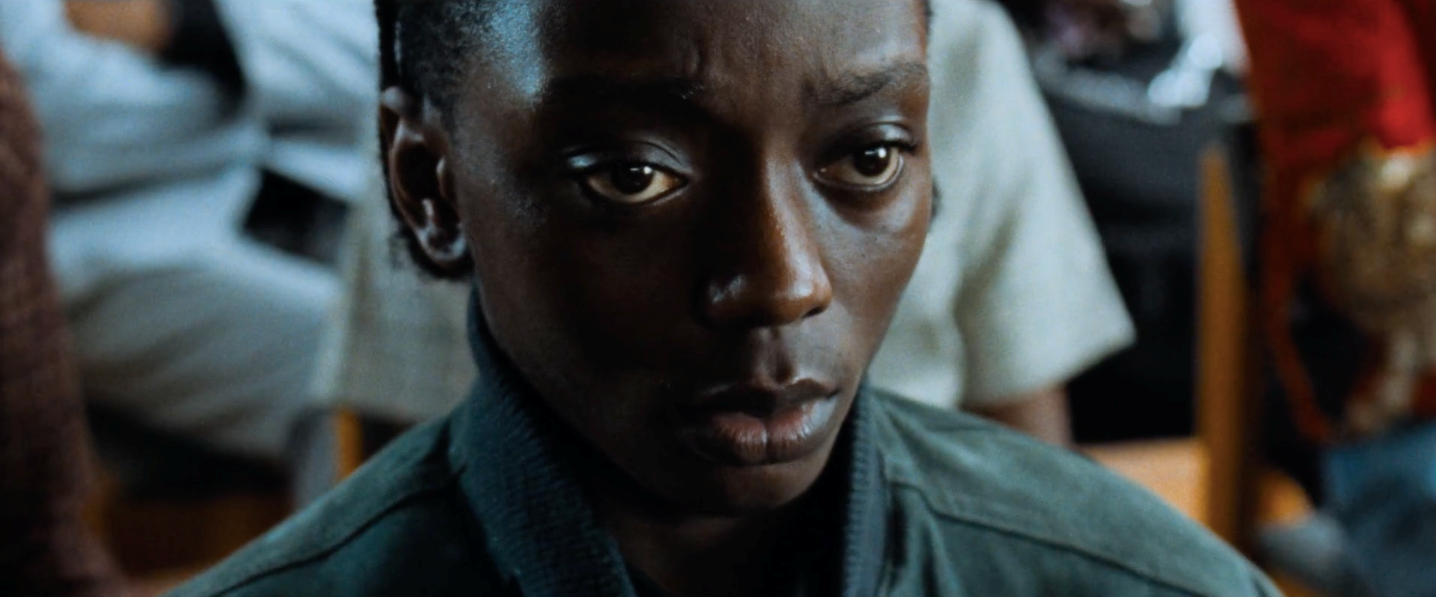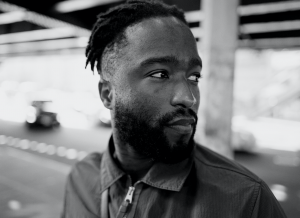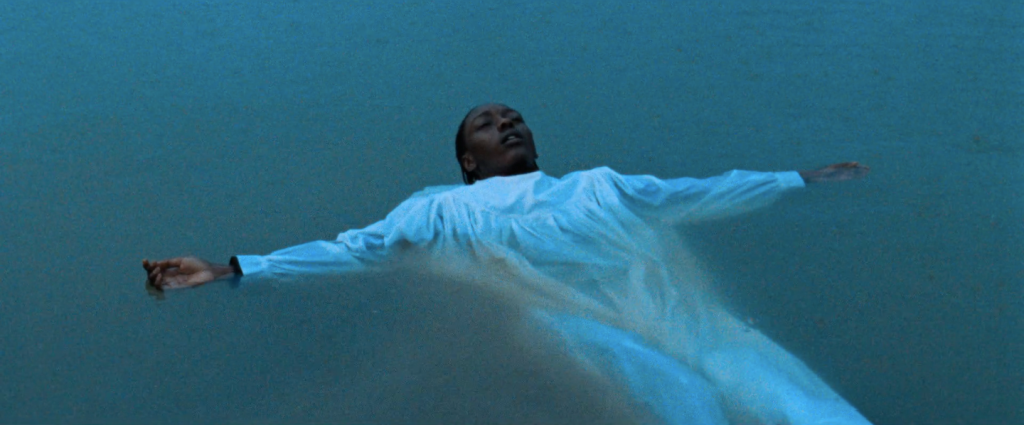Filmmaker 5 with Iggy London: Area Boy

Area Boy takes us to the confessional before attending church on Sunday in a timeless short film. We find ourselves stepping into the life of Eli, a young boy whose pain resonates globally with his excruciating struggle with who he is in his world, who he wants to be and what consequences may come with his decisions. What is sin? Is it poverty, loneliness, confusion? Can the water wash away the sins of the Father?
Too many young people are broken inside and hope to find a place of peace, or a friend that will help them find a way. Children inherit this unwanted struggle to remain within the boundaries of their family and community life. From the beginning of time, it’s been the struggle of the flesh. The sacrament of baptism is no guarantee to remove the struggle, but could it help Eli to find his way.
Award-winning filmmaker, artist and writer Iggy London takes us on a journey of identity, community, and faith in this powerful short film. Our Filmmaker 5 interview with Area Boy writer and director Iggy London follows.

Filmmaker 5.1: Area Boy delves into the emotional journey of a young boy in a new community, wrestling deep within himself about his own identity, family and place in society. Where did this story come from, and would you say it has one core theme?
The film is inspired by my experience in the midlands and north England while I was studying there. There was something incredibly beautiful yet sad about some of the places and people that I visited; so much so that I wanted to investigate this further. Moreover, whilst many short films are set in London and overly glamorise the capitol, I wanted to capture that tonal quality of an existence that falls out of city life; something which audiences rarely see.
Filmmaker 5.2: The film is bookended with religious and faith-based imagery and actions. What were your intentions for these opening and closing sequences?
The religious-based imagery was super important in immersing our audience into the heart of Eli’s faith and the struggles that a young person would face, with having to make a decision that feels like it would change his whole life course. I wanted it to feel super real – feel as though the audience were following Eli along the journey to his baptism – but also watching him as he falls deeper and deeper into his own thoughts too. The religious iconography was thought out meticulously for this reason. I wanted it to be intense, juxtaposing the everyday scenes of mundanity, conflicting with Eli’s own internal thoughts.
Filmmaker 5.3: Joshua Cameron, Malcom Kamulete, Mensah Bediako, and the ensemble cast give stellar performances in Area Boy. How did you source talent for the film? How do you evaluate and then foster chemistry between actors when casting multiple roles?
I think casting is one of my favourite parts of the filmmaking process. With casting these characters, we did open call outs and asked everyone to do self-tapes. Regardless of the acting experience, I was really interested in characters’ mannerisms – what they did on the self-tape with their expressions rather than what they said – as these expressions fed into their desires and intentions within the film.
For example, I was drawn by Joshua Cameron (who plays Eli) and his ability to show a multitude of emotions without rarely saying anything. We were blown away by his performance through just his eyes. I was drawn by Malcolm (who plays Kevin) and his confidence. He was a larger-than-life character and was the complete opposite to Eli. Malcolm played this well. I loved working with these actors to tease out what their personal stories were and bringing them into the foreground of their performances – even if it was during an improvisational scene or where there is no dialogue.
As we only shot for four days, it was important that everyone was locked in and focused. Having talks with each actor about the scene to relay back those initial thoughts were super crucial to ensure we captured the essence of each character.

Filmmaker 5.4: The instrumental piece of music at the end of Area Boy certainly evokes a mood. With whom and how did you collaborate on the final music? Any challenges or doubts?
I worked with a long-time collaborator, Rob Lewis. The work we do together is always different for each project. For Area Boy, we knew we wanted something that reflected the main protagonist’s own uncertainty – feeling awkward and weird in moments. For Rob, it was important for him to make a slightly bespoke feeling to each scene – measuring where Eli was in his journey. When figuring out the music journey for the baptism scene, we really felt like there needed a feeling of doom. A score that anchored Eli’s fate but felt ambiguous as well. A great reference for this was the electronic piano sounds in Moses Sumney ‘Doomed‘ track.
Filmmaker 5.5: Your work often focuses on identity, race, community, coming-of-age. Area Boy taps into our private selves and the conflicts felt within. What draws you to tell these deeply personal stories? And what do you want your art to convey about our humanity?
I am extremely passionate about telling this film because at the heart of it lies a very strong desire to challenge the idea of holy or not holy; wrong or right. I want to create worlds which hold a mirror to the society we live in and capture an essence of film that allows you to remove yourself from your own subject position to another’s – to create empathy through storytelling. To do this, I seek to tell the stories that feel real, capturing life as it happens rather than exaggerated ideas of reality.
Classic Couple Academy Recommends
Watch the Area Boy trailer
Filmmaker 5® collaborators Sharon Walters, senior film researcher
and Kami Spangenberg, publisher
